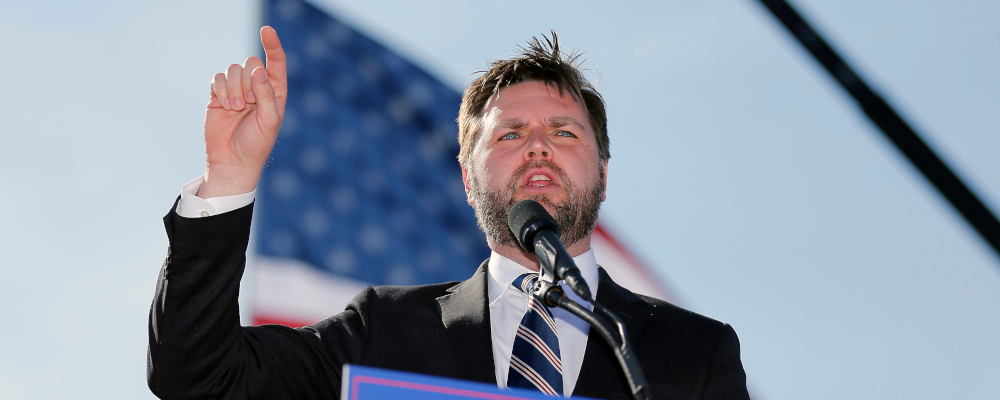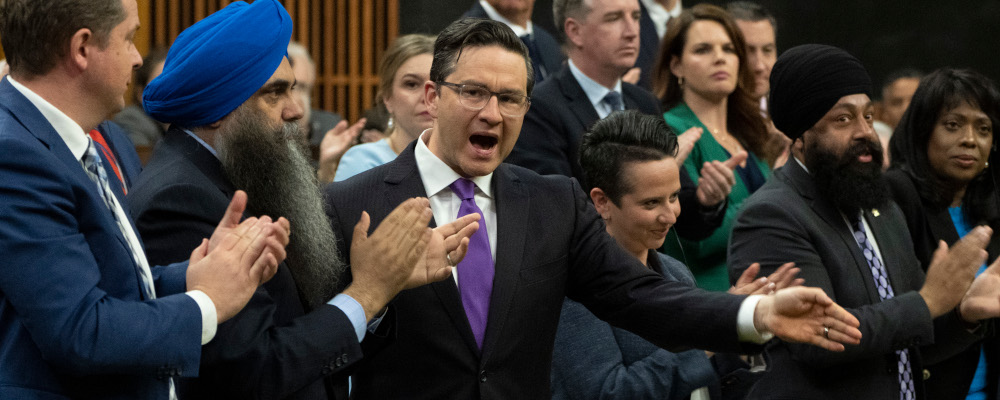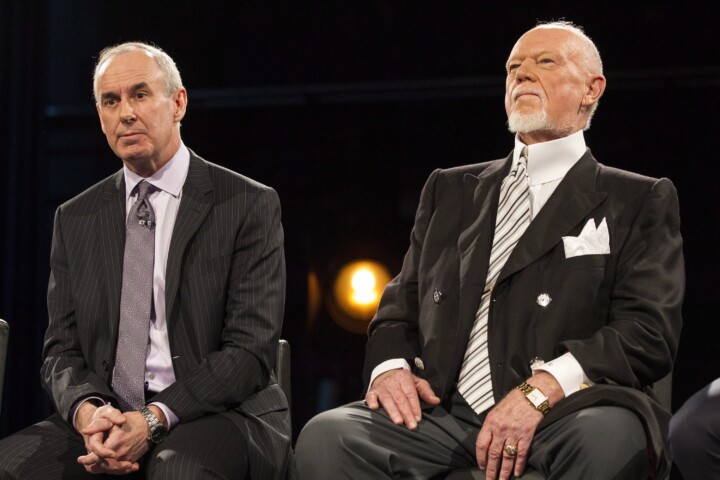American conservatism has been more or less fractious for 100 years as conservative intellectual (and past Hub Dialogues guest) Matthew Continetti documented in his must-read, 2022 book, The Right: The Hundred-Year War for American Conservatism. The past several years, however, seem to be marked by even greater intra-conflict and division than the historical norm.
These recent tensions have also flared up at times within Canadian conservatism. Jason Kenney’s high-profile sacking in Alberta last year by populist forces within his own party was in part a manifestation of similar developments. It’s fair to say, though, that over the past two decades or so, Canadian conservatives have generally been more united as a matter of politics and less heterodox as a matter of ideas than their American counterparts.
The explanation for the relative intra-movement accord is hard to discern. It may be due to the small size of the Canadian market and the relative ideological homogeneity (essentially small “l” liberalism) of the conservative movement, the ongoing influence of Baby Boomers (who are more small “l” liberal than conservatives in general) in the world of conservative ideas, Stephen Harper’s own philosophical legacy, a lack of serious engagement with ideas on the part of subsequent Conservative politicians, or perhaps an expression of the inherent conservatism of “Peace, Order and Good Government.”
It would be wrong however to assume that Canadian conservatism is immune to the intellectual and political developments that are currently challenging American conservative orthodoxy or even that such immunity would be propitious. Some of the trends that are reshaping American conservatism are contingent. But most are not.
Canadian conservatives need to come to understand the difference between the two and the consequences for their own ideas, priorities, and policies. Recent developments in the U.S.—including the release of competing manifestos about the intellectual foundations of modern conservatism—will no doubt come to find expression in Canada. Conservatives here should therefore proactively engage with these arguments in order to anticipate how they may manifest themselves in our own politics.
The end of the conservative consensus
Let’s start with the factors at the backdrop of the intra-movement debate about ideas and politics within American conservatism. They include:
- the political ascendancy of Donald Trump and his brand of right-wing populism;
- a broader political realignment in U.S. politics in which the traditional support bases of the Democratic and Republican parties are shifting;
- an emerging intellectual and political movement opposed to post-Cold War neoliberalism in particular and liberalism in general;
- the return of Great Power Competition and possibly a new Cold War with China;
- generational change within conservatism and a renewed emphasis on culture and identity among younger intellectuals and political figures;
- the rise of social media and fragmentation of traditional sources of ideas and information;
- and progressive dominance of key mainstream institutions and their growing assertiveness in businesses, news media, universities, and the public square around a set of issues broadly defined as “identity politics” or “wokeism.”
These developments have cumulatively contributed to an erosion of the conservative consensus involving free markets, social conservatism, and a hawkish foreign policy (sometimes described as “fusionism”) that provided the intellectual scaffolding for American conservatism essentially from the launch of National Review magazine in the mid-1950s to the second term of George W. Bush’s presidency.
As Continetti himself wrote last week for the Washington Free Beacon:
the consensus unravelled…[Its] success [led] to hubris and complacency…and in 2016, a large plurality of the GOP primary electorate voted for a candidate who rejected large parts of the conservative consensus.
Yet, if Trump was a major catalyst for the final dissolution of twentieth-century fusionism, he was never going to be an intellectual and political catalyst for what comes next. He’s a transitional figure rather than a transformative one. The debate about the future of conservative ideas and policies was invariably a post-Trump exercise.
FreeCons versus NatCons: The character of conservatism
The past week or so witnessed a major development in that process. A high-profile group of conservative thinkers and writers, such as the American Enterprise Institute’s Jonah Goldberg, former Bush administration adviser Karl Rove, and Washington Post columnist George Will, published a manifesto entitled, Freedom Conservatism: A Statement of Principles, which outlines the broad contours of a conservatism rooted in the ideas of personal freedom, free enterprise, and an open, dynamic society.
The manifesto, which has been the subject of considerable discussion and debate, is an expression of a pre-Trumpian conservatism that eschews Trump’s tendency towards state intervention in the market economy as well as his closed view of society and reactionary politics. It instead sets out as its core belief that “individual liberty is essential to the moral and physical strength of the nation.”
This is a set of propositions (including an intentional reference to a “city on the hill”) that Ronald Reagan could have comfortably signed onto. It is, for all intents and purposes, a contemporary expression of the old fusionist consensus. It even draws inspiration from the 1960 Sharon Statement which was drafted in the home of William F. Buckley Jr., who as a committed Catholic and self-described libertarian, personified twentieth-century fusionism.
There’s much to like in the manifesto. Its affirmation of growth and dynamism (“the free enterprise system is the foundation of prosperity”) is important in an era in which politics have come to overemphasize equity and economic security. So is its endorsement of the rule of law, constitutionalism, and individual rights (“a nation of laws, not men”) as well as its overarching aspirational and positive vision.
There are however some notable omissions. The rise of China and the return of Great Power Competition is inexplicably absent. So is the growing problem of job polarization, questions of basic economic dignity, and the crucial task of building new sources of middle-class opportunity.
The most interesting part of the manifesto though is that it had to be written in the first place. It must be understood as a dialogue with an emergent conservative faction that isn’t motivated to update the old fusionism of Buckley and Reagan but rather aims to permanently replace it with a less liberal and more populist form of conservatism.
This movement of thinkers, writers, and increasing numbers of politicians who call themselves National Conservatives (or NatCons for short) subscribes to a conception of conservatism that stands in conflict with Buckley’s National Review and the other establishment institutions that are frequently disparaged as “Conservative Inc.” They are consciously anti-fusionist and, as Continetti writes, they’re having a significant influence over the world of American conservatism in general and Republican politics in particular.
The NatCons released their own manifesto entitled, National Conservatism: A Statement of Principles, last year. Its signatories included: Christian conservative writer Rod Dreher, conservative activist Christopher Rufo, and well-known venture capitalist Peter Thiel.
The NatCon manifesto places a major emphasis on religion and faith traditions (“no nation can long endure without humility and gratitude before God and fear of his judgment that are found in authentic religious traditions”), liberal trends in the culture (“radical forms of sexual license and experimentation”), and the transformation of mainstream institutions such as K-12 schools and universities into incubators for a homogenizing progressivism. It also implicitly reflects the view that liberal conservatives have been naïve about liberalism’s purported neutrality on matters of culture and values and the imperative to actively shape institutions in a conservative mould.
The biggest differences between the competing manifestos however can be found in their ordering of priorities—freedom is barely cited in the NatCons’ manifesto which instead grants primacy to nationalism, traditionalism, and virtue—and the proper role and uses of the state.
While the FreeCons reflect a conventional conservative skepticism of state action (“political freedom cannot long exist without economic freedom”), the NatCons don’t share the same reservations. Not only is their economic agenda more state-centric (“the free market cannot be absolute”) but they’re also openly prepared to use the levers of state power to promote a “shared Western civilization” and pushback against “universalist ideologies…, immorality…[and] destructive personal habits.” This vision of conservative statecraft reflects a common argument from NatCon voices: in a world in which the only major culture-shaping institution that conservatives may conceivably control is the government, they need to be prepared to use state power for conservative ends.
The release of two manifestos has led to considerable debate within conservative intellectual circles. Some have argued that the differences are overstated (“resemble the finer cracks on the surface of an imperfectly baked cheesecake”). Others have contended that areas of ideological overlap ultimately obscure some irreconcilable differences including their fundamental outlooks about Western society (“the greatest difference…is not about policy details. It’s about their differing assessments of the character of America”).
As I’ve come to think about it, this attitudinal difference is perhaps best captured in the inherent tension between Ronald Reagan’s “Morning in America” and Donald Trump’s “America carnage.” One way to put it is: the FreeCons aspire to cultivate a conservative renaissance and the NatCons wish to launch a conservative revolution.
While it’s fair to say that the FreeCons may count among themselves more establishment figures—particularly from Washington-based think tanks and other key conservative institutions—, the NatCons are currently stealing the march in the practical world of world politics. As Continetti observes:
As much as one may disagree with large parts of National Conservatism, one cannot dismiss its significance. It has influenced the Trump administration (if not Trump the man) as well as Florida governor Ron DeSantis. Add businessman Vivek Ramaswamy to the mix, and candidates who reflect National Conservative views command 78 percent of the national GOP primary vote. That is a sign of a party transformed. And the transformation may well accelerate. A lot of the energy behind National Conservatism comes from young people.

The leading political figure is arguably Ohio Senator J.D. Vance who has close relationships with many leading NatCon voices and has spoken several times at their events. His form of “realignment politics”, which conforms closely to the NatCon manifesto, represents a new, different, and possibly more salient conservative politics. It’s too early to judge. But his early success (including bipartisan legislation with Democratic senator Elizabeth Warren) is a sign that these intra-debates are more than a mere intellectual exercise. They are shaping American policy and politics in profound ways.
Is there a NatCon future for Canadian conservatism?
Which brings us back to Canada. As mentioned earlier, Canadian conservatism has mostly been immune to these recent intellectual and political developments.
To the extent that there is a conservative intellectual class here, it’s predominantly liberal. NatCon-types are a small yet energetic minority. The Hub probably counts some—or perhaps most of them—among its network of contributors.
My experience is that they tend to be defined by some combination of Catholicism, intellectualism, and pessimism. They don’t reject liberalism perhaps as outright as some American NatCons but they share their general criticisms about its inherent flaws and deficient outcomes. Although they may not want full post-liberalism, they are in favour of something different than the default liberalism that presently suffuses Canadian politics in general and Canadian conservatism in particular.
Contemporary NatCons actually have something of a historical antecedent in English Canadian Red Toryism. The cultural and political ideas of George Grant would undoubtedly find a home in the National Conservative manifesto. So would the “anti-Laurentian” conservative worldview that Ben Woodfinden set out in a previous essay for The Hub.
Yet there’s little evidence that NatCon ideas have had much influence over Canadian conservative politics. Former Conservative leader Erin O’Toole nodded at times to ideas of tradition, solidarity, and a realignment politics. But it was never clear whether it was a serious philosophical challenge to conservative orthodoxy or merely a political tactic. His efforts, therefore, have not had much of a lasting impact on Conservative politics.
His successor, Pierre Poilievre, speaks the language of Freedom Conservatism. He has doubled down on a message and vision of personal freedom and generally deemphasized questions of morality or virtue. He’s fundamentally a live-and-let-live conservative. The party has subsequently followed in his direction—particularly in the face of the Trudeau government’s heavy-handed response to the pandemic, its big-government economic agenda, and its predisposition to identity politics.
The presumptive Conservative candidate in O’Toole’s old riding, Jamil Jivani, may be an exception. He’s probably the highest-profile NatCon-adjacent figure in the world of elected Canadian conservative politics. Jivani (who is the subject of a forthcoming Hub article by editor-in-chief Stuart Thomson) has at different times championed NatCon ideas about nationalism, the role of government, and race. He also happens to be close friends with Vance with whom he attended Yale Law School.
If readers believe that a political realignment and the rise of National Conservatism in Canada would represent positive developments, then Jivani is a political figure that they’ll want to familiarize themselves with. Assuming he’s ultimately elected, he has the potential to be an influential voice in Canadian conservative politics. He has the right mix of credentials, ideas, and popular touch to climb the political ladder on an expedited basis and position himself as a “thought leader” who pushes the conservative movement in a more NatCon direction. He’s definitely someone worth watching.

More generally, one can foresee something like National Conservatism finding resonance in Canada for a few reasons. The first is a growing sense that liberal neutrality is insufficient to push back against the left-wing identity politics permeating public institutions such as schools and universities. The recent high-profile suicide of a Toronto District School Board principal after being subjected to bullying in an anti-racism session has drawn popular attention to both how radical this movement is and how much influence it has come to have on elite culture and within mainstream institutions. The visceral reaction to the tragic story suggests that there may be energized constituency for a political programme that confronts identity politics more directly using state power such as curriculum reform, adopting New Brunswick’s Policy 178 on gender identity in schools, or even prohibiting public spending on anti-racism or diversity, equity, and inclusion programming.
The second is immigration. The Trudeau government’s massive increase in immigration (including its annual in-take targets as well as non-permanent resident streams) is now producing a series of second-order consequences in the housing market and demand for public services that risk contributing to anti-immigration sentiment across the country. Thus far Poilievre has resisted calls to present much of an alternative to the Trudeau government’s unprecedented numbers. This may create an opening for immigration restrictionists to his Right such as the People’s Party and Maxime Bernier. Cutting immigration levels (and even a “moratorium on immigration”) is a key differentiator between the FreeCons and NatCons. It’s quite possible that we see a similar fault line emerge here in Canada.
The third is the possible rise of an inter-faith movement opposed to the excesses of cultural progressivism in the areas of identity and sexuality. It has been notable that among the loudest critics of progressive sex-ed curriculum and the proliferation of so-called “gender ideology” have been Muslims. This has led to a growing discussion about the potential for new cultural and political coalitions rooted in shared religiosity and a sense of alienation from an increasingly secular culture that can feel inhospitable to religious minorities. The NatCon’s defence of public religion, which seeks to defend an expansive role for religious values and voices in the public square, could find common support across different faith groups who may no longer be satisfied that liberalism itself provides them with sufficient protection.
These scenarios are of course inherently speculative but given the overwhelming influence of American culture and ideas on Canadian life, they’re hardly inconceivable. We’ve seen plenty of instances in recent years where the Left and the Right in Canada have both imported certain U.S. political memes and postures. The borderlessness of the online world makes that increasingly inevitable.
In that vein, the seemingly abstract and philosophical debate between the FreeCons and NatCons about the purpose and priorities of modern conservatism is worth following. It’s bound to eventually permeate the forty-ninth parallel and influence Canadian conservatism. The consequences for our culture and politics could be significant.
Recommended for You

Falice Chin: A tale of two (Poilievre) ridings

Evan Menzies: Calgary at 150: Why is it so hard to celebrate our history?

Howard Anglin: Canada is badly failing the ‘Tebbit Test’

‘We’re winning the battle of ideas’: Conservative MP Aaron Gunn on young men moving right, the fall of ‘wokeness,’ and the unraveling of Canadian identity




